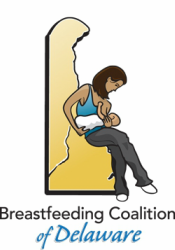Breastfeeding Benefits

Breastfeeding has advantages to both infant and mother, particularly if done exclusively, without supplementation of formula.
What’s in it for Mom?
What’s in it for Baby?
Breast milk is the best source of nutrition for infant growth, health, and development.
Decreased risk of:
What’s in it for Your Family?
What’s in it for Employers?
What’s in it for Society?
Related Articles
Be inspired…watch this video of breastfeeding supporters and Join the Boob-olution!
What’s in it for Mom?
- Reduced risk of breast and ovarian cancer
- Uterus returns to its normal pre-pregnancy size more quickly
- Decreased postpartum bleeding
What’s in it for Baby?
Breast milk is the best source of nutrition for infant growth, health, and development.
Decreased risk of:
- Severe Lower Respiratory Tract Infections
- Diarrheal Illnesses
- Ear Infections
- Eczema
- Asthma
- Type I Diabetes
- Type II Diabetes
- Obesity
- Sudden Infant Death Syndrome (SIDS)
- Childhood Leukemia (ALL, AML)
What’s in it for Your Family?
- Increased time for attention to siblings and other family matters as a result of fewer infant illnesses
- You’ll spend less money on food! The cost of purchasing extra food for a breastfeeding mother is less than half the cost of purchasing infant formula.
- You’ll spend less time preparing food for your baby. Breast milk requires no preparation and is always the perfect temperature!
What’s in it for Employers?
- Decreased parental employee absenteeism and associated loss of family income
- Reduction in sick time taken by both moms and dads for children’s illnesses
- More satisfied, loyal employees & cost savings to the business
- Retention of experienced employees; lower turnover rates
- Lower healthcare & insurance costs
- Potential for decreased annual health care costs of $3.6 billion in U.S.
- Not to mention all of the health benefits that will continue to be made possible with breastfeeding in the workplace!
What’s in it for Society?
- Potential for decreased annual health care costs of $3.6 billion in U.S.
- Decreased costs for public health programs such as the Special Supplemental Nutrition Program for Women, Infants, and Children (WIC)
- Decreased parental employee absenteeism and associated loss of family income
- Decreased environmental burden for disposal of formula cans and bottles
- Decreased energy demands for production and transport of artificial feeding products
Related Articles
Be inspired…watch this video of breastfeeding supporters and Join the Boob-olution!
